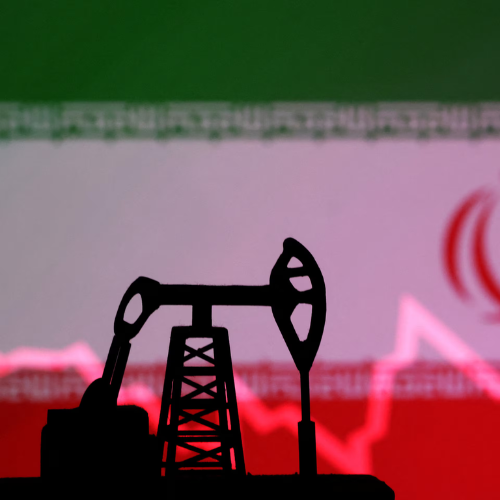Iranian oil is at the center of recent U.S. actions against Iran following a missile attack on Israel. In a significant move, the United States has taken action against Iran’s oil and petrochemical industries, marking a crucial development in international relations.
Recent Missile Attack on Israel
On October 1, 2024, Iran launched a ballistic missile attack on Israel, a move that alarmed many countries, including the United States. The attack heightened fears about Iran’s growing military capabilities and its potential to use its resources for aggressive actions in the region.
In light of this situation, the U.S. government decided to impose new sanctions on Iranian oil. On October 11, the U.S. Treasury Department announced that it would target Iran’s oil and petrochemical sectors. This means that companies and ships involved in trading Iranian oil and chemicals will face penalties.
These sanctions specifically target 17 ships and 10 businesses linked to what is known as the “ghost fleet.” This fleet refers to a group of tankers that transport Iranian oil and petrochemicals, often under the radar. Some of these tankers have been transporting Iranian oil to countries like China, which has been a significant buyer of Iranian oil since 2021.
China Warns of Espionage Through Idle Network Devices
What Do the Sanctions Involve?
The sanctions imposed by the United States have several important components. Firstly, they aim to prevent Iran from using the money it earns from Iranian oil sales to fund its nuclear and missile programs. The U.S. government believes that if Iran can access its oil revenue, it may invest that money in weapons and military activities, which could lead to more instability in the region.
Treasury Secretary Janet Yellen explained that these sanctions are designed to disrupt Iran’s ability to finance its aggressive actions. She emphasized that the U.S. would continue to take strong measures to hold Iran accountable for its activities, particularly its support for various armed groups in the Middle East. These groups often engage in violence and terrorism, which adds to the concerns of many countries, including Israel and the United States.
The Challenges Iranian Truckers Face Due to EU Sanctions
The entities targeted by these sanctions are located in various parts of the world, including Hong Kong, the United Arab Emirates, and Malaysia. This shows that the U.S. is looking at international networks that help facilitate Iranian oil sales. By targeting these companies and ships, the U.S. hopes to reduce Iran’s access to the global oil market.
In addition to the ships and businesses directly involved in the oil trade, the new sanctions also give the U.S. more authority to address a wider range of activities related to Iranian oil trading in the future. This means that the U.S. can respond quickly to any new developments or changes in Iran’s oil operations.
Implications for Global Security and Economy
The sanctions are important for several reasons. First, they represent a significant step in the ongoing struggle between the U.S. and Iran. The two countries have a long history of conflict, and Iran’s recent military actions against Israel have heightened these tensions. By imposing these sanctions on Iranian oil, the U.S. is sending a clear message that it will not tolerate Iran’s aggressive behavior.
Germany Arrests Chinese Spy Yaqi X. on Espionage Allegations Related to Leaking Airport Secrets
Second, the sanctions could have a major impact on global oil markets. If Iran’s ability to sell its oil is limited, it could lead to changes in oil prices around the world. Countries that rely on Iranian oil may have to find alternative sources, which can affect global supply and demand.
Finally, these sanctions also aim to support Israel and reassure its government and citizens. Given the recent attack, Israel is understandably concerned about its security and the potential for future attacks from Iran or its allies. By taking decisive action against Iranian oil, the U.S. demonstrates its commitment to standing by Israel and countering threats from Iran.
The U.S. has expanded sanctions on the Iranian oil sector following a ballistic missile attack on Israel. These sanctions aim to prevent Iran from using oil revenue to fund its military programs and destabilizing activities in the Middle East. The sanctions target specific ships and entities involved in the oil trade, allowing the U.S. to respond more effectively to Iran’s actions. These developments highlight the ongoing tensions between the U.S. and Iran, as well as the broader implications for global oil markets and regional security.


